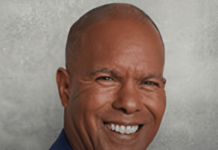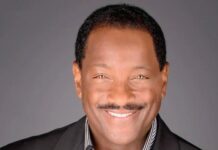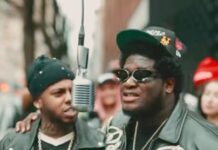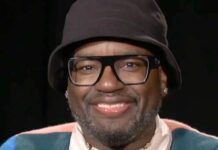
*The former police officer accused in the death of Freddie Gray says he didn’t call an ambulance for him during their ride to the precinct because he was alert, appeared uninjured and didn’t complain of any pain or wounds, reports the AP.
Officer William Porter, the first of six officers to go on trial, was said to be “poised and calm” as he testified in his own defense Wednesday. Gray, 25, died a week after suffering a spinal injury while riding, handcuffed and shackled, in the back of the police van.
PORTER’S TESTIMONY:
Porter said he did tell his colleague, the van driver, to take Gray to the hospital after he said he needed medical attention during the van’s fourth of six stops. The fourth stop is crucial in Porter’s case because prosecutors say Gray was already injured by the time he arrived there, and Porter’s failure to call a medic to the scene contributed to Gray’s death.
Prosecutors also say by not buckling Gray into a seat belt during that stop, which is company policy, Porter was criminally negligent. Porter’s attorneys say Gray suffered his injury later and that their client did what any officer would do.
As for why he didn’t buckle Gray into a seat belt, Porter told the jury that the wagon is “pretty tight” and said that of his 200 arrests involving the transport van, he has never belted in a prisoner.
Porter added that he left the scene after lifting Gray from the floor of the wagon to the bench, and it was Caesar Goodson, the driver, who closed the wagon’s doors.
It would have been his responsibility, Porter said, to buckle Gray into a seatbelt and he didn’t know if he did.
Goodson faces the most serious charge stemming from Gray’s death: second-degree “depraved-heart” murder. His trial is next month.
Porter said he only realized Gray was hurt when the van reached the police station. Porter said Gray was unresponsive “with mucus around his nose and mouth.” Porter said he called Gray’s name — as he’d done at previous stops, which elicited responses — but this time Gray was silent. Porter told jurors the experience was “a very traumatic thing for me.”
Porter said during the fourth stop, Gray made eye contact with him and spoke “in a regular tone of voice.”
“He never made a complaint of pain or an injury,” Porter said. “In order to call for an ambo I need age, sex, location and complaint of injury. He wouldn’t give me a complaint of injury.”
Porter, who is also black, told jurors that when Gray was arrested, he overheard him screaming and mentioning something about needing an inhaler. When asked if Gray said he couldn’t breathe at the van’s fourth stop, Porter said, “absolutely not.”
One of the prosecution’s witnesses, an internal affairs investigator, said Porter told her that Gray said during the van’s journey that he couldn’t breathe. But Porter explained Wednesday that the investigator was mistaken, and he only heard Gray say that when he was arrested, not when he was in the van.
Defense attorneys have suggested that the van driver was responsible for Gray’s safety and indicated the officer may have thought Gray was faking an injury to avoid going to jail.
Porter faces manslaughter, assault, misconduct in office and reckless endangerment charges. If convicted on all charges, the maximum penalty he faces is about 25 years.
We Publish News 24/7. Don’t Miss A Story. Click HERE to SUBSCRIBE to Our Newsletter Now!





